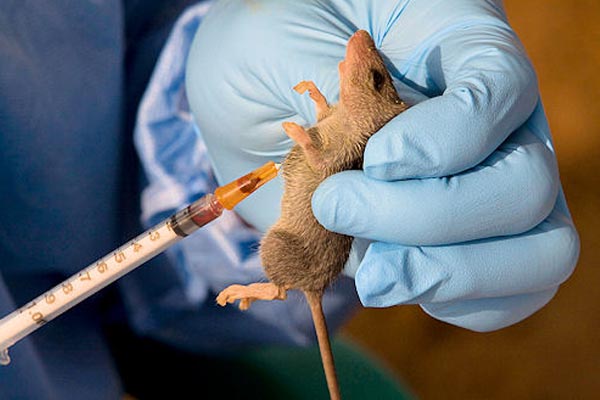News
Ghana records 12 more cases of Lassa fever
Published
1 year agoon
By
Vida Essel-Lamptey
The Ghana Health Service(GHS) has announced 12 more cases of Lassa fever in the country following an initial two reported on February 26.
The report bring to a total, 14 cases of the acute viral haemorrhagic illness caused by Lassa virus, a member of the arenavirus family of viruses.
A statement from the service sighted by GhanaPlus.com, said the 12, were detected through contact tracing and testing.
One person has sadly been reported dead from the Lassa fever.
“All 13 cases are alive and in stable condition and are being managed in designated health facilities,” the statement said.
The statement added “A total of 97 contact have been identified and efforts are underway to identify more contacts”.
The Ghana Health Service said a probably case has been reported from the Central Region of the country and contacts are being identified and monitored while, its await confirmation or other wise report.
The Service is consequently advising the Ghanaian public to avoid contact with rodent, ie mice, rat, etc. blood and body fluid while caring for the sick, ensure good environmental hygiene practices among others.
It also urged the public to report to the hospital when unwell.

Lassa fever
Centers for Disease Control and Prevention (CDC) defines Lassa fever as an animal-borne, or zoonotic, acute viral illness spread by the common African rat.
The illness is said to be very common in parts of West Africa, including Nigeria, Sierra Leone, Liberia, and Guinea.
Spread through urine and fecal droplet of rodent such us mice, rat etc., the illness was first documented in 1969 in Nigeria’s town of Lassa, in Borno State and subsequently named after same.
Lassa fever symptoms include general weakness, malaise, headache, sore throat, muscle pain, chest pain, nausea, vomiting, diarrhoea, cough, and abdominal pain may follow.
In severe cases, “hemorrhaging or bleed in gums, eyes, or nose, respiratory distress, repeated vomiting, facial swelling, pain in the chest, back, and abdomen, and shock may occur.
Neurological problems have also been described, including permanent hearing loss, tremors, and encephalitis”. CDC report said.
“Death may occur within two weeks after symptom onset due to multi-organ failure”, it added.
About 80 percent of cases of Lassa fever is however, asymptomatic and are undiagnosed.
Source: GhanaPlus.com
You may like
-


Africa needs real economic transformation – Merck Foundation
-


Mahama leads NDC to mourn with Kufuor over wife’s passing
-


Inject all of us so we die if you will not help us – Spokesperson for fellows with renal diseases tells gov’t
-


Teenage boy arrested in Bangkok shooting
-


Former First Lady of Ghana Theresa Kufuor reported dead
-


The most powerful tool for change is the right to vote – Mahama



Mahama leads NDC to mourn with Kufuor over wife’s passing
Former President John Dramani Mahama on Wednesday, October 4 led a delegation from the National Democratic Congress (NDC) to visit...


Former First Lady of Ghana Theresa Kufuor reported dead
The former First Lady of Ghana and wife of Ghana’s former President, John Agyekum Kufour, Mrs Theresa Kufuor has been...


The most powerful tool for change is the right to vote – Mahama
The 2024 flagbearer of the National Democratic Congress (NDC), John Dramani Mahama, is rallying Ghanaains who have grown disillusioned with...


PFJ was a mere state resource looting platform – Minority
The Minority has descended heavily on the Akufo-Addo-led government for launching a second phase of the flagship Planting for Food...


ECOWAS is desecrating Ghana
The Director of Legal Affairs of the National Democratic Congress (NDC), Mr Abraham Amaliba has said the Economy Community of...


Prof Gyampo elected President of UTAG, University of Ghana branch
A Senior Lecturer at the Political Science Department of the University of Ghana (Legon), Prof Ransford Gyampo have been elected...
